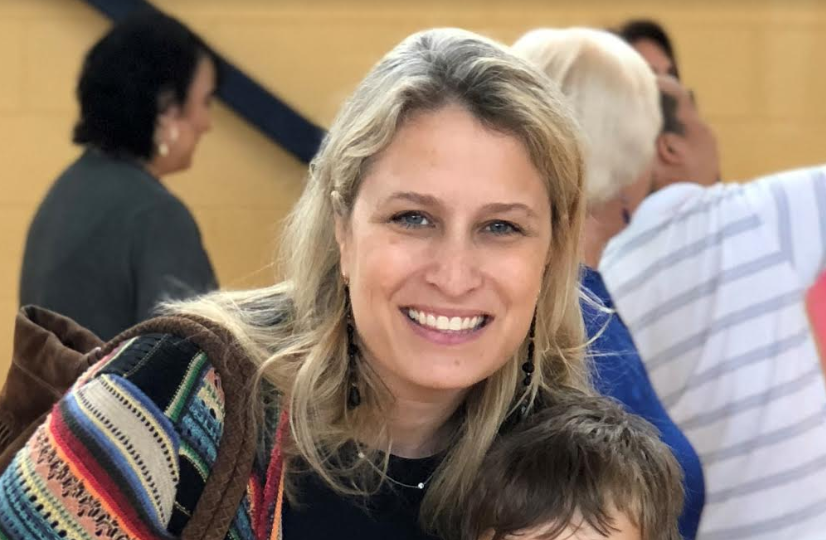
Claudia Sironi is an executive with 20+ years of experience in Luxury Retail where she has held leadership positions in Design, Merchandising, Creative/Retail Operations, and Learning and Development.
Here is what Claudia had to say when we asked her about learning to lead:
GenHERation®: In your opinion, what characterizes an effective leader?
Claudia Sironi: Leadership means nothing if your team doesn’t respect you enough to want to follow you. A leader with no followers is not an effective leader. Effective leaders are those whose teams perform optimally, so simply said—a leader’s effectiveness is measured by their team’s output, not their own. I know you may be faced with a lot of anxiety as you transition from school to professional life and you are likely doing a personal inventory of the skills you have mastered to date and those you want to gain. Let me start by giving you some good news, leadership is not something you are expected to innately know, it is something you strive to learn. At this point in your journey you don’t need to know how to be a leader, but you can set yourself up to learn these skills for later. Leadership is a skill like any other. You can learn it and practice it, but only when you put your personal stamp on it will you become a strong leader. Here’s something you may not realize yet: Leadership comes at great personal sacrifice. To quote Simon Sinek, “You are not in charge of the people you lead, you are responsible for those in your charge.” This means when things go right, great leaders give away all the credit, and when things go wrong, exceptional leaders take all the responsibility. This is why I say that leadership needs to be something you choose.
GenHERation®: Can you elaborate upon your approach to leadership?
Sironi: My approach to leadership has always been “I shine when my team shines.” My performance is measured by their success, not my own. It is always my goal to hire people who are smarter than me and are better than me at a certain skill. I carefully consider the skills of every member of my team and how we use these skills collectively. As their leader, I am never threatened by their capabilities. I pride myself with being able to paint a clear picture for my team of what great looks like, so they know what they need to strive for and understand what it takes to be successful. I never expect anything of them that I’m not willing to do myself. I believe strongly that my actions speak louder than my words and demonstrating the competencies I expect them to possess is the more effective way to build skill in my team.
GenHERation®: What can individuals do to develop their leadership skills, so they can be leaders in the classroom, the workplace, and their personal lives?
Sironi: Right now you are, as we say in the HR biz, an “individual contributor.” The contributions you are being asked to make today are those associated with your own education because you are expected to learn new skills in order to be successful in school. Or, you are an “individual contributor” in the workplace and your success is measured by how well you fulfill your professional responsibilities in exchange for a paycheck. My advice to you is to enjoy your time as an individual contributor—don’t rush this valuable stage in your development. Instead, learn as much as you can about what it feels like to be led. Observe every leader who leads you and keep track of what you like and dislike about their style and approach. Notice the small moments: How do they speak to you? How do they motivate? How do they explain priorities and goals? How do they give honest feedback? How do they support you to learn from your mistakes and give you permission to take risks? Gather insight from these moments and use this to build your portfolio as a leader. Most of what I learned about leading today was pieced together from leaders in my past. I was lucky to have been led by some great leaders, but also by some terrible leaders—and I learned just as much from each of them!
GenHERation®: How do adults learn most effectively?
Sironi: Adults learn things differently than students. More specifically, adults learn in accordance with the 70-20-10 model: 70% of the new skills adults learn comes from taking on challenging assignments and by learning a new skill on the job. 20% of what adults learn comes from other people, such as their leaders or their peers. 10% of what adults learn comes from traditional training. Understanding this rule means every day is a learning experience to be taken advantage of. What does this mean for leaders? As a leader, the best way to help your team learn or master a new skill is to give them the opportunity to work on a stretch assignment and support them while they are doing something new. Effective leaders know how to support their teams situationally by leaning in closer when something new is expected of them—and giving them space when the expectation is familiar.
GenHERation®: What is the main takeaway you have when it comes to learning to lead?
Sironi: Be a learner and not a knower. Approach everything in life as someone who doesn’t know all the answers. Be genuine and authentic about not knowing all the answers, but always be curious and ask a lot of questions. If you approach situations as a knower, not a learner, you risk pre-determining outcomes and not opening yourself up to new solutions. As a learner, you are so much more apt to get insight and uncover something you weren’t expecting. Be the kind of leader who shows your team that you can be vulnerable, as this vulnerability will make you a stronger leader.
Claudia Sironi is an executive with 20+ years of experience in Luxury Retail where she has held leadership positions in Design, Merchandising, Creative/Retail Operations, and Learning and Development. She has A to Z experience in branding, full life cycle product development, and design from conception through retail. Claudia is best known for her ability to inspire and engage small or large teams to reach their fullest potential and achieve results. She has been recognized for her success in creating structure, discipline, and efficiency even in the most challenging environments. Claudia’s leadership approach is a versatile mix of strategic vision, creativity, and collaboration. She holds dual citizenship (USA, Italian) and is trilingual (English, French, Italian).



Comments (0)